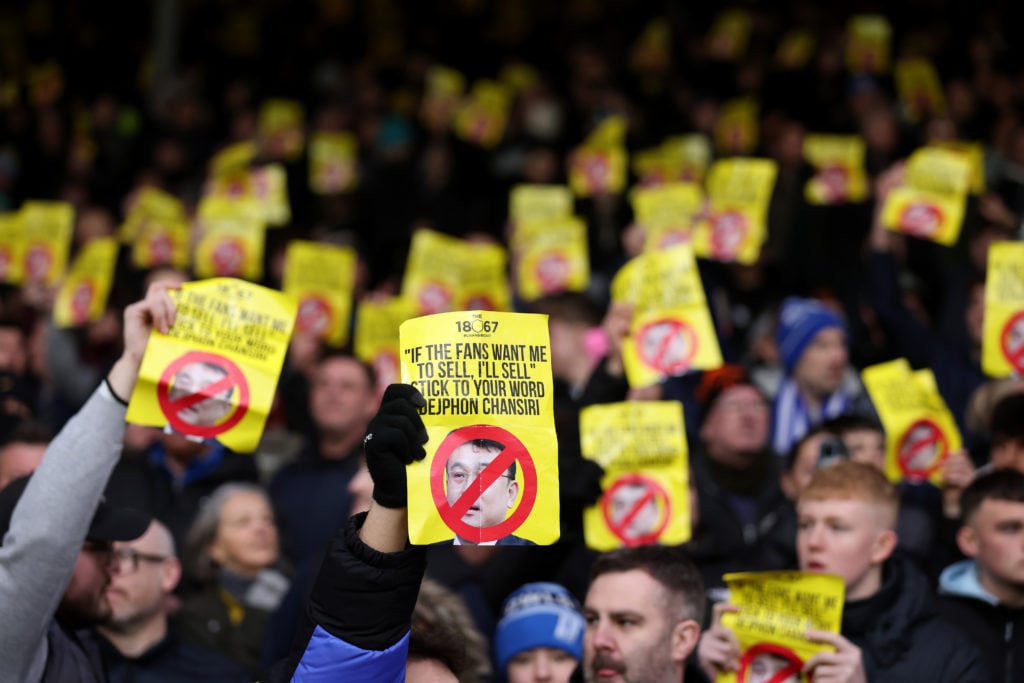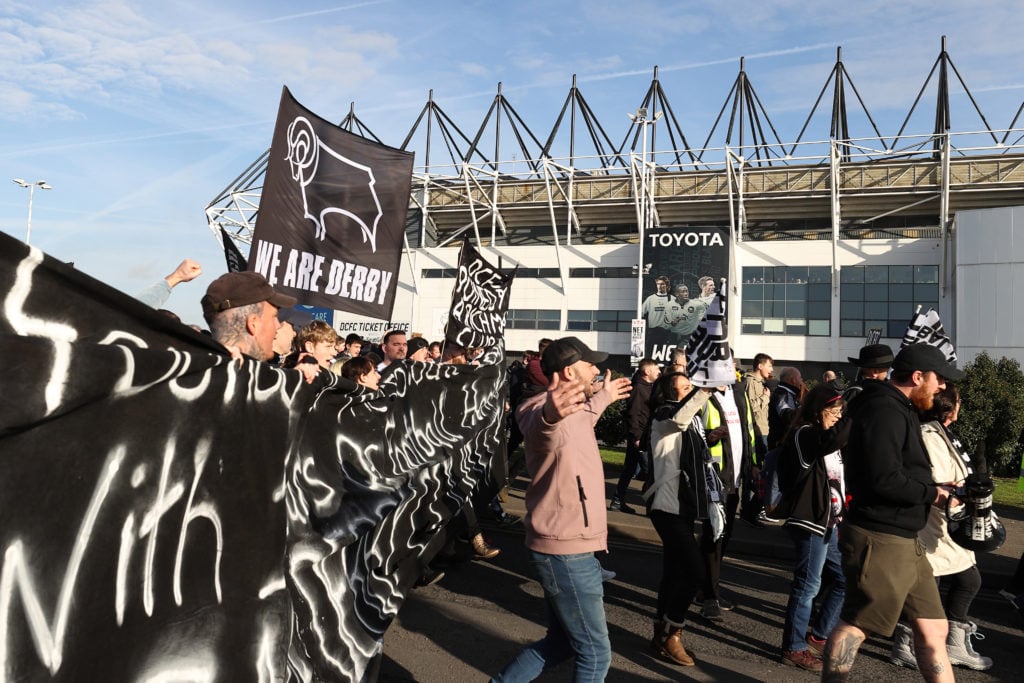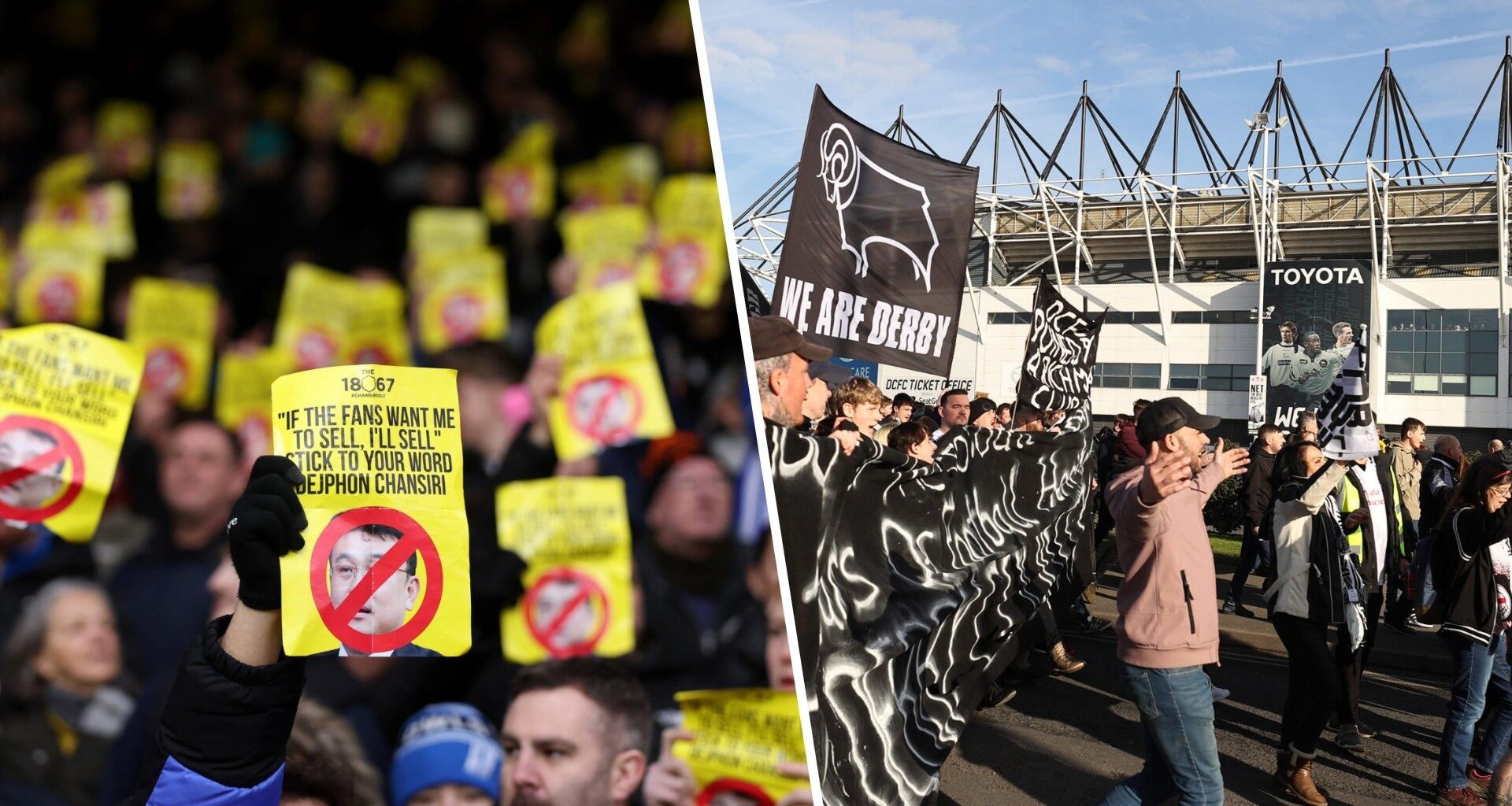English football stands on the cusp of its biggest shake-up in decades, as MPs voted to back the landmark Football Governance Bill.
The legislation, now poised to become law, indicates the establishment of an independent regulator tasked with supervising the men’s game’s top five divisions.
This decision promises to usher in an era of greater financial stability and accountability, directly addressing the difficult situations that have plagued clubs for years.
For too long, football has witnessed its foundations crumble under the weight of financial mismanagement and reckless ownership, leaving loyal fan bases devastated.
For example, clubs like Sheffield Wednesday have been handed a triple transfer embargo in the past few weeks due to their ongoing financial crisis.
Derby County have also been hit with multiple points deductions in the past and descended into administration.
These are just two instances of systemic failures that this new bill hopes to fix.
 Photo by George Wood/Getty ImagesWhat the new bill means for EFL teams
Photo by George Wood/Getty ImagesWhat the new bill means for EFL teams
Culture Secretary Lisa Nandy said, in a message to football fans: “We are doing this for you because for too long, you have been treated as an afterthought at best or a nuisance at worst in a game that is only great because of you.
“This is for Macclesfield, for Wigan, for Bury, for Bolton, for Derby, for Reading, for Sheffield Wednesday, for Morecambe and for many, many more who have had to endure the misery of being put last when they should have been put first.”
The passing of the Football Governance Bill brings significant changes for clubs across the English Football League, from the Championship down to League Two.
The new independent regulator’s main goal is to make sure clubs are financially stable and properly run, protecting them from the kind of problems that clubs have faced in the past.
Crucially, the regulator will have powers to ensure money from lucrative TV deals and other sources is shared more fairly across the entire football pyramid.
This could seriously reduce the huge financial gap between the Premier League and the EFL, helping clubs in the lower leagues to be more competitive and less reliant on risky spending to chase promotion.
The new law also means tougher checks for anyone wanting to buy or run a football club, aiming to prevent unsuitable owners from causing a financial mess.
Importantly, it will also give fans a stronger voice in how their clubs are run, ensuring they are consulted on key decisions like changes to club badges or stadium locations.
 Photo by James Williamson – AMA/Getty ImagesHow the Bill aims to help clubs like Sheffield Wednesday
Photo by James Williamson – AMA/Getty ImagesHow the Bill aims to help clubs like Sheffield Wednesday
The Football Governance Bill is specifically designed to address the types of financial problems seen at clubs such as Sheffield Wednesday, which have faced issues such as reports of unpaid wages or restrictions on player recruitment due to outstanding financial matters.
First, the bill will bring in stricter checks for anyone who wants to own or run a football club. The new Independent Football Regulator (IFR) will carefully check if these potential owners have enough money and are trustworthy.
This aims to stop individuals who might cause financial trouble for clubs like Wednesday. If an owner is found to be unsuitable, the IFR will have the power to remove them.
Second, the IFR will make sure clubs are financially stable by demanding detailed money plans. They can step in if a club starts missing payments, like wages.
This means the IFR could force Sheffield Wednesday to sort out any unpaid wages quickly, stopping financial problems from getting worse and preventing severe penalties that impact the club’s performance and stability.
This new system should help keep clubs healthy and prevent them from falling into financial chaos.
